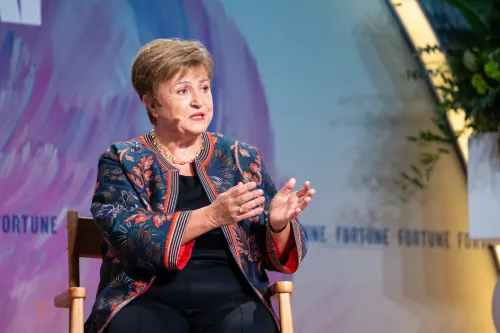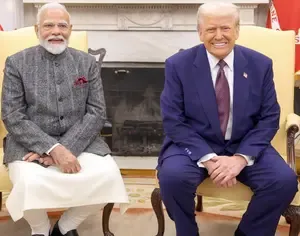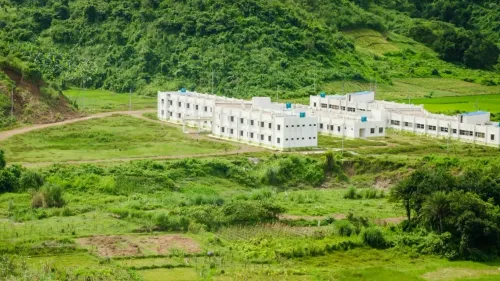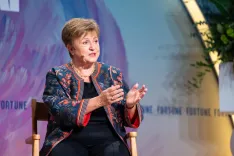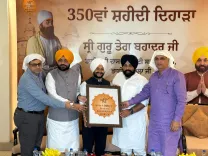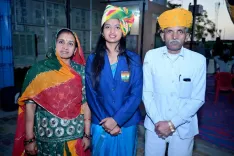What Did India Emphasize at the NAM Ministerial Regarding Global Cooperation Against Cross-Border Terrorism?
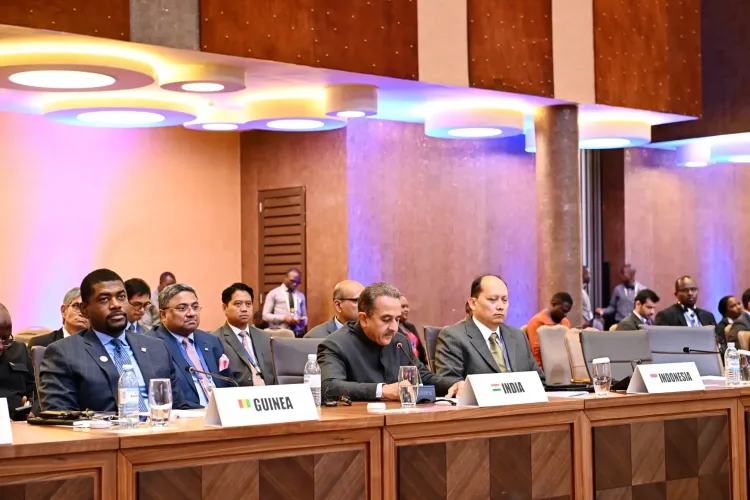
Synopsis
Key Takeaways
- Global Cooperation: Essential in fighting cross-border terrorism.
- Zero Tolerance: NAM must reject any form of support for terrorism.
- India’s Commitment: Ongoing developmental projects in over 70 countries.
- International Solidarity: A united front is necessary for global security.
- Historical Ties: Strengthening partnerships, as seen in India-Uganda relations.
Kampala, Oct 16 (NationPress) In a significant address, Union Minister of State for External Affairs Kirti Vardhan Singh reiterated the importance of global collaboration to combat the common menace of cross-border terrorism during the 19th Non-Aligned Movement (NAM) Mid-Term Ministerial held in Kampala, Uganda.
In his remarks, Singh stated, "Terrorism represents a collective danger that can only be managed through enhanced international cooperation. For numerous years, India has suffered from horrific cross-border terrorist assaults, the latest being on April 22, 2025, when innocent tourists were tragically killed in Pahalgam, Jammu & Kashmir.
He pointed out, "When nations adopt terrorism as an element of state policy, when terrorist havens are allowed to thrive without consequences, and when terrorists are celebrated by state officials, such behavior warrants unequivocal denunciation," clearly alluding to Pakistan.
The Minister of State underscored that nearly every NAM member recognizes the threat posed by terrorism and is dedicated to countering it.
Addressing Pakistan's actions, Singh expressed, "It is deeply regrettable that during the UN Security Council discussion on the Pahalgam terrorist attack, a member state chose to defend the perpetrator – The Resistance Front – even seeking to remove any public mention of them.
"It is essential for the Non-Aligned Movement to maintain a stance of zero tolerance towards terrorism. Any form of support, sponsorship, or concealment of terrorism will ultimately backfire on those engaged in such actions," he emphasized.
Singh asserted that in a world experiencing unprecedented changes, NAM could serve as a platform to tackle significant challenges facing humanity today while advancing the rightful aspirations of the Global South.
As a foundational member of NAM and a representative of the Global South, he stated that India has been sharing its developmental experiences with partner nations to foster shared global prosperity.
He highlighted India's commitment through various developmental projects in 78 countries, the provision of vaccines and medicines to 150 nations during the Covid pandemic, and initiatives like the International Solar Alliance, Coalition of Disaster Resilient Infrastructure, Global Biofuels Alliance, and Big Cat Alliance.
Earlier that day, Singh met with Odongo Jeje Abubakhar, Uganda’s Minister of Foreign Affairs, to explore avenues for enhancing cooperation across diverse sectors.
After the meeting, Singh took to X to express, "India and Uganda share a warm relationship built on historical ties and mutual respect. We engaged in productive discussions aimed at strengthening and expanding our partnership across various dimensions, including trade, defense, development cooperation, and capacity building."

